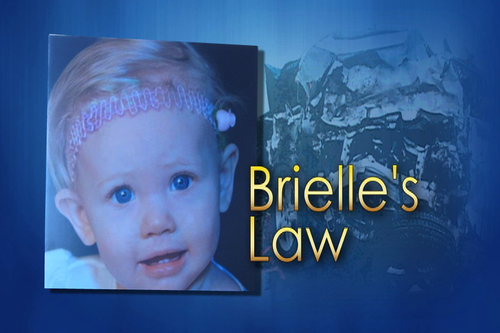Laws Named After Children Should Require A Super Majority To Pass

Just as the North Dakota legislature is considering tougher DUI laws for the state, the North Dakota Department of Transportation has launched a new ad campaign featuring the victims of high-profile drunk driving incident from last year.
Because that’s not at all political, right?
And the state’s media, most notably Forum Communications, has hyped a few cases of drunk driving and has even named drunk driving legislation after one of the victims.
“Brielle’s Law,” is what they’re calling it, per this graphic from WDAY:

I feel like I should propose my own law – “Rob Port’s Law,” perhaps – which would state that any law named after a child immediately requires a super majority of legislative votes to pass. Perhaps we could add in, too, any law that is “for the children” according to its supporters. Or any law that is touted by a legislator who surrounds himself/herself with children while advocating for the law.
Such tactics are manipulative. They’re an attempt to cloud logic and facts with emotion, to use children as human shields for any criticism of the proposed policy, and rarely is good policy made on the basis of how we feel rather than what we think.
There are a lot of good reasons to oppose the new DUI laws being proposed in the legislature. For one, mandatory jail sentences for first-time offenders are going to have a big impact on jails around the state which are already filled to capacity. Complying with that mandate will have a big impact on spending. We’re going to need more, and bigger, jails staffed with more law enforcement officials.
For another, there’s not a lot of evidence to show that increased enforcement is going to save lives. Despite a 53% increase in DUI arrests in North Dakota over the last decade according to the latest state crime report, alcohol-related accidents and fatalities have actually gone up slightly (though, for context, remember that we have more drivers driving more miles on our roads of late):

If tougher enforcement isn’t saving lives, and preventing injuries and property damage, then what are we accomplishing other than bloating law enforcement budgets and filling up our courts and jails?
I’m not convinced that drunk driving is the epidemic it’s made out to be. We really have a very, very small number of accidents and fatalities. So small, I’d argue, that “get tough” policies aren’t going to have much of an impact. But drunk driving is a problem, so maybe we need an approach that is something other than more cops, more jails and a “throw the book at them” mentality.







